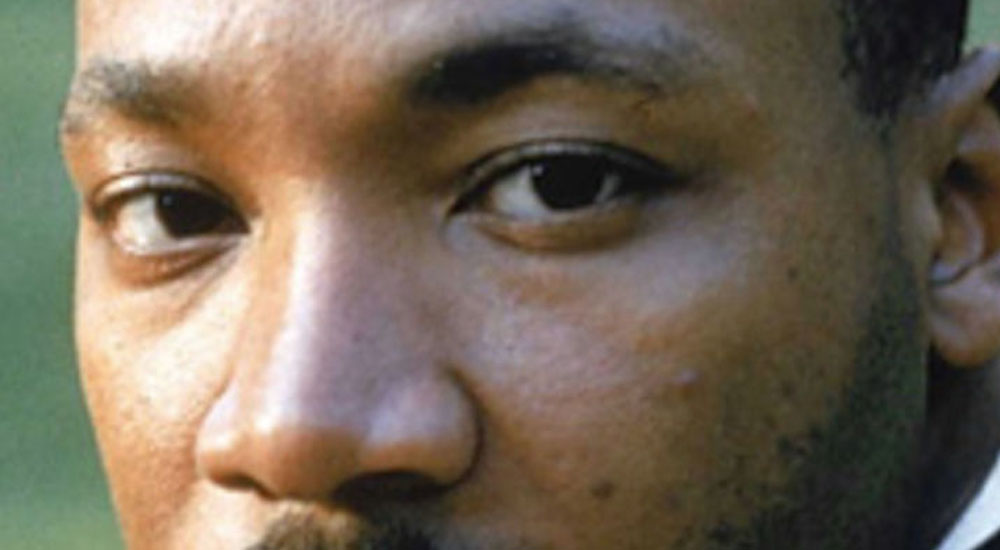As a young man growing up in Virginia public education system (and Catholic parochial schools), I was introduced to Lee-Jackson-King Day at an early age — and thought nothing of it.
After all, this began the season of being quizzed on the American catechism after a long Christmas break. Learn who Lee and Jackson were; learn who Martin Luther King Jr. was; next came Washington’s Birthday and then Lincoln’s birthday. There were other secular saints: JFK for instance, RFK as well. Naturally there were our living heroes as good little papists: Pope John Paul II, Mother Teresa, and Justice Scalia among them.
Besides, we all knew the game. Our teachers knew that it was easier to gloss over history rather than teach it, and so all three figures were mentioned in carefully choreographed paragraphs of a 3rd grade reader and left to be. We nodded and took the grades, because if it wasn’t important to our teachers why should it be important to us? After all, Voltron was on at 3pm; Thundercats at 3:30pm. Homework followed.
Over the last four years, racial consciousness has trickled back into the American lexicon in a way towards which my generation was entirely deaf. Our identities were wrapped up in bigger things: professions, trades, faith, music, games. We had — and so we were taught — arrived at a post-racial society.
The famed economist Frederic Bastiat wrote in his phenomenal treatise The Law that once a society figured out that it was easier to steal from the other half rather than work, the game was effectively up. Conservatives instinctively know this, which is why they are phenomenally aggressive about winding down and eliminating the barricades between personal innovation and economic self-reliance. Liberals worry instinctively that such a dynamic creates a society of “haves” and “have nots” where the cosmic lottery of good looks, ambition, intelligence and social conditions conspire against the other.
The Founders worried about this latter problem as well. How could a representative democracy operate without a lingua franca? For many years, that common language was the American West, cleared by militia and cavalry and settled by Germans, Irish, Scandinavians and Slavs. Thomas Paine may not have invented 40 acres and a mule, but in The Rights of Man he certainly made the case for an equal start. Outcomes belonged to the landowner.
Then we ran out of land. Tensions ran high until Europe decided to commit global suicide in two successive world wars, and American industry picked up the slack. By the time the American worker reached his high water mark — right about 1968 — industry no longer held the promise it once did, and slowly declined until President Ronald Reagan removed the boot from the throat of the American economy, ramping up deficit spending in order to destroy the Soviet Empire.
The information age came in the late 1990s, until that bubble burst. September 11th made all of America racially aware as anyone with a dark beard and olive complexion became either a “border jumper” or a terrorist. Iraq and Afghanistan were followed up the Great Recession. Syria, Libya, Yemen, Somalia, the Ukraine were all followed up by the slowest recovery in modern history. Credentialism promised wonderful degrees, but without a form of intellectual homesteading, 40 acres and a mule was loaned out on rent to colleges and universities eager to double and triple their tuition rates.
In short, one can easily understand the angst of Americans under 40. Sold out to indentured servitude with cheap credentialism, carrying degrees that serve the interest of the soft sciences (but are worthless in the modern economy), and operating for the last 17 years under an identity politics started not under Obama, but under the Bush administration post-9/11?
Bastiat was right.
What we are left with is a juxtaposition of values rooted in identity, all for lack of vocations and a sound footing. The values that generations prior took for granted and frittered away have to be rediscovered by a new generation ill-equipped to do so, if for no other reason than we were bombarded with compromises such as “Lee-Jackson-King” Day that punted on the hard questions of opportunity and education while heaping the American catechism — what we are all supposed to commonly know, believe, and understand about the American experiment — on a funeral pyre of debt, appetite, and feelings.
Our families are divided, our churches empty, our institutions rotting… all because it is more rewarding to steal than build, to ignore rather than reconcile. Lee-Jackson-King Day may be a relic now, but it should be a reminder that Virginia hasn’t always done the right thing when it comes to building (rather than stealing) a better future.
We have work to do, and it’s not the sort of work at which you can simply throw gobs of money. Rather, it is the hard work of taking a rootless, nihilistic generation and asking them to become heroes again — not pirates, but heroes.
Conservatives and liberals both have sound arguments on the ends; surely there is common ground on the means.

